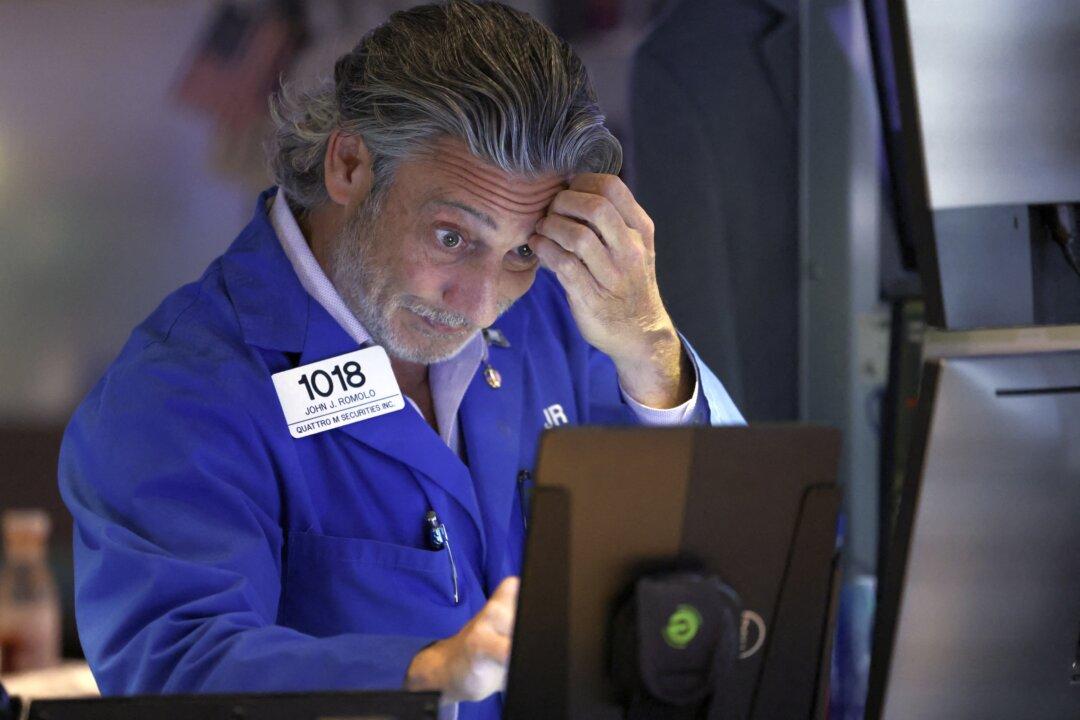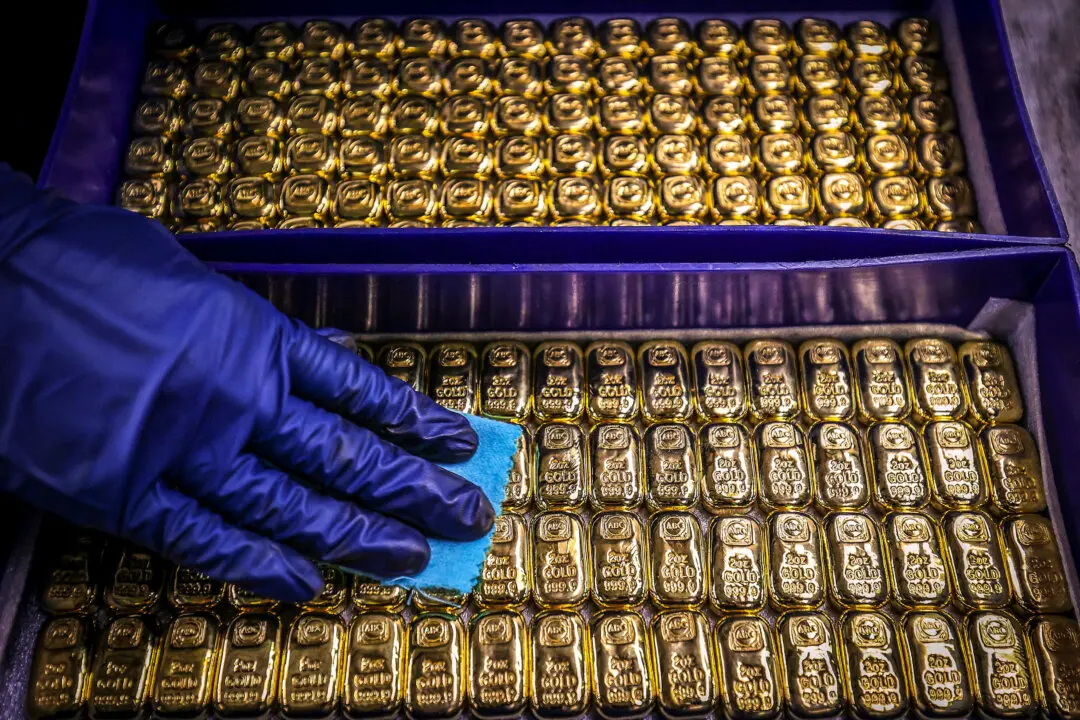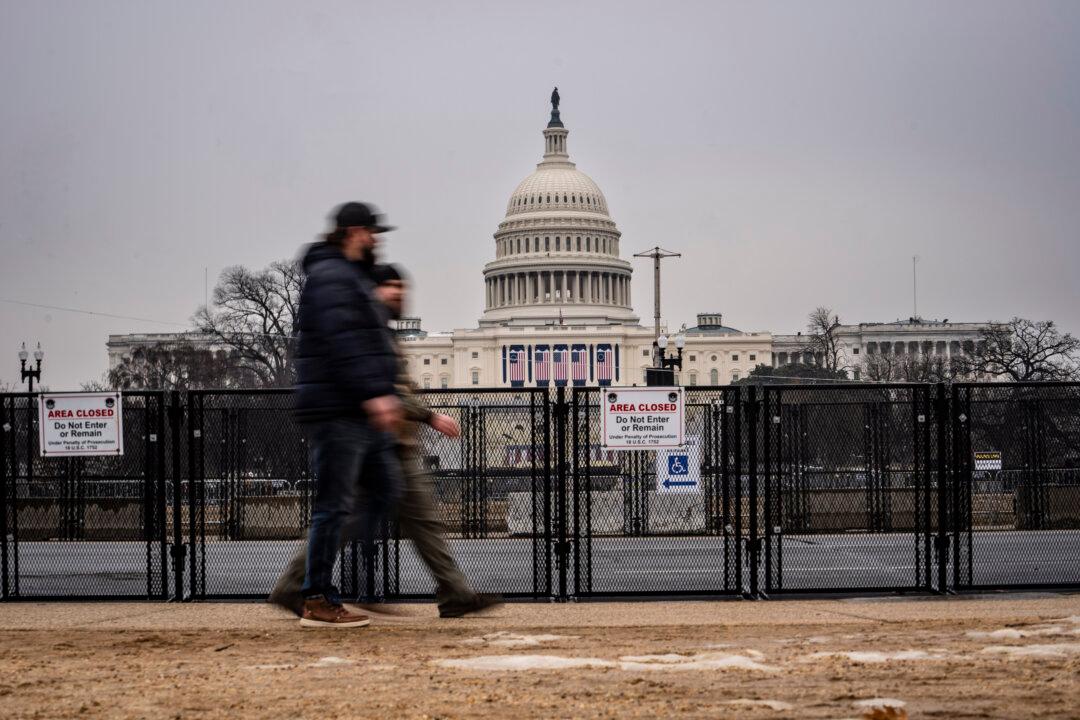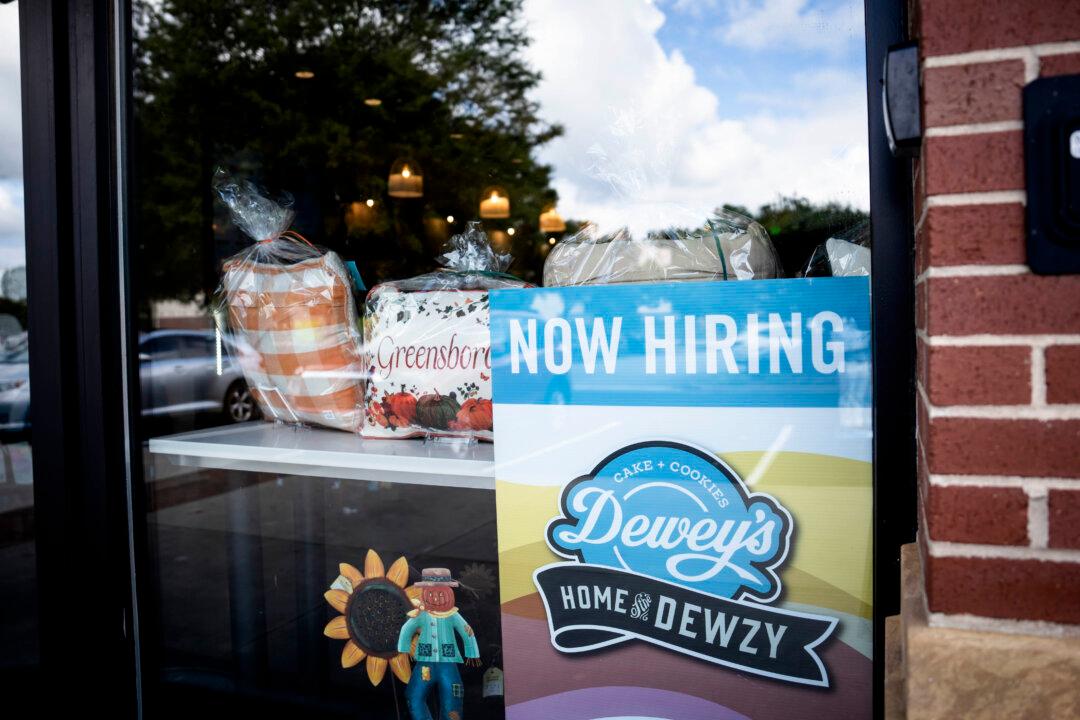After hitting a peak in March, the number of job openings has been falling since, a potential indicator that the labor market could be slowing down.
The number of job openings tumbled by 605,000, to 10.7 million, in June, falling short of the market estimate of 11 million. The rate of job openings dropped to 6.6 percent from 6.9 percent.
The most significant declines were situated in retail trade (minus 343,000), wholesale trade (minus 82,000), and state and local government education (minus 62,000).
In June, the number of hires fell by 133,000, to 6.374 million, the lowest reading since May 2021. Total separations, which include discharges, layoffs, and quits, also edged lower to an eight-month low of 4.237 million.

The data, derived from 20,000 weekly surveys conducted in July, is strongly correlated with initial unemployment claims, which have also increased in recent weeks, providing an early warning signal for the labor market.
The much-anticipated July nonfarm payroll report will be released on Aug. 5. The market is penciling in 250,000 new jobs and an unemployment rate of 3.6 percent. If accurate, it would be a sharp decrease from the 372,000 positions that were added in June.
More Companies Laying Off Workers
In recent months, many large and small companies have been laying off workers, suggesting that the red-hot jobs boom could be cooling off.“We seem to have entered an economic downturn that will have a broad impact on the digital advertising business. It’s always hard to predict how deep or how long these cycles will be, but I’d say that the situation seems worse than it did a quarter ago,” Zuckerberg said.
“As the national [gross domestic product] flattens, the Small Business Jobs Index also slowed significantly in July,” James Diffley, chief regional economist at IHS Markit, said in a statement. “With an index level above 100, we’re seeing continued job growth, but the pace of that growth has declined.”
How Will the Fed Impact Jobs?
Federal Reserve Chair Jerome Powell refrained from saying the economy was in a recession, arguing that the strong job market didn’t indicate an economic downturn.Powell, when speaking to reporters following the July Federal Open Market Committee policy meeting, alluded to 2.7 million jobs that were added in the first half of 2022 and strong wage growth.
“It doesn’t make sense that the economy could be in recession with this kind of thing happening,” he said.
With the U.S. central bank raising interest rates, economists contend that this would slow business activity because tightening would raise borrowing costs and make credit more expensive or hard to obtain. This would prevent companies from expanding operations or hiring workers, they say.
After the Labor Department reported higher employee compensation in the second quarter, there has been growing concern that inflation remains persistently high and that it would force the Federal Reserve to take more hawkish action on monetary policy.





